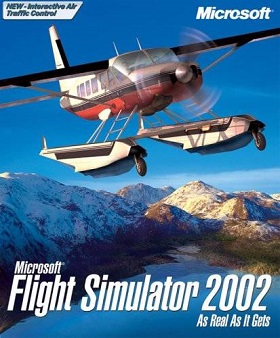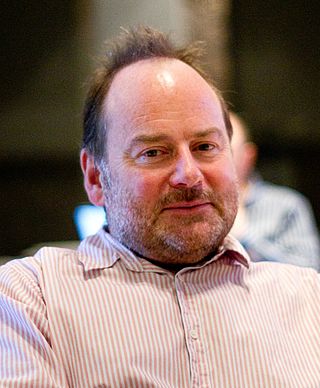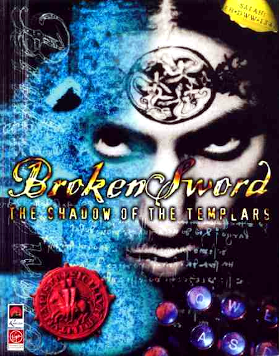Related Research Articles

FASA Corporation was an American publisher of role-playing games, wargames and board games between 1980 and 2001, after which they closed publishing operations for several years, becoming an IP holding company under the name FASA Inc. In 2012, a wholly owned subsidiary called FASA Games Inc. went into operation, using the name and logo under license from the parent company. FASA Games Inc. works alongside Ral Partha Europe, also a subsidiary of FASA Corporation, to bring out new editions of existing properties such as Earthdawn and Demonworld, and to develop new properties within the FASA cosmology.
White Wolf Entertainment AB, formerly White Wolf Publishing, was an American roleplaying game and book publisher. The company was founded in 1991 as a merger between Lion Rampant and White Wolf Magazine, and was initially led by Mark Rein-Hagen of the former and Steve Wieck and Stewart Wieck of the latter. White Wolf Publishing, Inc. merged with CCP Games in 2006. White Wolf Publishing operated as an imprint of CCP hf, but ceased in-house production of any material, instead licensing their properties to other publishers. It was announced in October 2015 that White Wolf had been acquired from CCP by Paradox Interactive. In November 2018, after most of its staff were dismissed for making controversial statements, it was announced that White Wolf would no longer function as an entity separate from Paradox Interactive.
Andrew Nicholas Oliver and Philip Edward Oliver, together known as the Oliver Twins, are British twin brothers and video game designers.

MicroProse is an American video game publisher and developer founded by Bill Stealey, Sid Meier, and Andy Hollis in 1982. It developed and published numerous games, including starting the Civilization and X-COM series. Most of their internally developed titles were vehicle simulation and strategy games.
Broken Sword is a series of adventure games. The first game in the series, Broken Sword: The Shadow of the Templars, was released and developed in 1996 by British developer Revolution Software. Its sequel, Broken Sword II: The Smoking Mirror, was released a year later, and was followed by Broken Sword: The Sleeping Dragon in 2003, Broken Sword: The Angel of Death in 2006, and Broken Sword 5: The Serpent's Curse in 2013. A remake of the first game in the series, known as Broken Sword: Shadow of the Templars – The Director's Cut, was released in 2009, and a remake of the second game in the series, Broken Sword: The Smoking Mirror – Remastered, in 2010 for iOS devices; other platforms followed in 2011.

Microsoft Flight Simulator 2002 also known as FS2002, is a video game released in October 2001, and is the 8th installment of the Microsoft Flight Simulator video game series. A version called Professional Edition was released at the same time as standard edition that added two aircraft, a flight instructor feature, and an editor to create buildings and aircraft.

IL-2 Sturmovik is a 2001 World War II combat flight simulator video game and is the first installment in the IL-2 Sturmovik series. The release focused on the air battles of the Eastern Front. It was named after the Soviet Ilyushin Il-2 ground-attack fighter, which played a prominent role in this theatre and is the single most produced military aircraft design to date. Along with its sequels, IL-2 Sturmovik is considered one of the leading World War II flight simulators.

Free Radical Design Ltd. was a British video game developer based in Nottingham. Founded by David Doak, Steve Ellis, Karl Hilton and Graeme Norgate in Stoke-on-Trent in April 1999, they are best known for their TimeSplitters series of games. After going into financial administration, it was announced on 3 February 2009 that the studio had been acquired by German video game developer Crytek and would be renamed Crytek UK. Crytek had a good relationship with the city of Nottingham due in part to its sponsorship of the Gamecity festival and its recruitment drives with Nottingham Trent University. In 2014, the studio closed and a majority of the staff transferred to the newly formed Dambuster Studios. In May 2021, the original founders reformed the studio, led by Doak and Ellis, to create a new entry in the TimeSplitters series. The reformed studio incarnation operated under Deep Silver. The second iteration was shutdown on 11 December 2023.

Microids is a French video game developer and publisher based in Paris. Founded in 1985 by Elliot Grassiano, it attained early success with games published through Loriciel in France and other partners in international markets. Through expanding its staff and development teams, Microïds generated funds to expand from just development to publishing and distribution and opening international offices. The company merged with MC2 in 2003 to create MC2-Microïds, whereafter it acquired publishers Wanadoo Edition and Cryo Interactive. Grassiano left MC2-Microïds in 2005; under new management, MC2-Microïds was briefly renamed MC2 before returning to the old Microïds name. It was then acquired by Anuman Interactive in 2010, which itself was renamed Microïds in 2019.

Charles Cecil is a British video game designer and co-founder of Revolution Software. His family lived in the Democratic Republic of the Congo when he was still very young, but was evacuated two years after Mobutu Sese Seko's coup d'état. He studied at Bedales School in Hampshire, England. In 1980 he began his studies in Engineering Manufacture and Management at Manchester University, where he met student Richard Turner who invited him to write text adventures for Artic Computing. After completing his degree in 1985 he decided to continue his career in game development and became director of Artic. The following year he established Paragon Programming, a game development company working with British publisher U.S. Gold. In 1987 he moved into publishing as a software development manager for U.S. Gold. A year later he was approached by Activision and was offered the position of manager of their European development studio.

Kerberos Productions Inc. is a video game developer based in Vancouver, British Columbia, Canada. The company was formed in 2003 by former employees of Rockstar Vancouver.

Sword of the Stars is a space 4X game developed by Kerberos Productions. In the game the player chooses one of four unique races to form an interstellar empire and conquer the galaxy. In order to win, the player must expand territory by colonizing new star systems, exploit the resources available to their colonies, design and build starships, and improve their empire's technology through research and strategy.

Broken Sword: The Shadow of the Templars is a 1996 point-and-click adventure game developed by Revolution Software. It is the first in the Broken Sword series, co-written and directed by Charles Cecil. The player assumes the role of George Stobbart, an American tourist in Paris, as he attempts to unravel a deep conspiracy involving a sinister cult and a hidden treasure, seeing him travel to various locations around Europe and the Middle East. The game's storyline was conceived to feature a serious tone and heavily influenced by research on Knights Templar by Cecil, but was also interlaced with humor and graphics in the style of classic animated films.

The Legend of Zelda: Phantom Hourglass is a 2007 action-adventure game developed and published by Nintendo for the Nintendo DS handheld game console. It is the fourteenth installment in The Legend of Zelda series and the direct sequel to the 2002 GameCube title The Wind Waker. Phantom Hourglass was released worldwide in 2007, with the exception of South Korea in April 2008. The game was re-released for the Wii U via the Virtual Console service in the PAL region in November 2015, in North America in May 2016, and in Japan in August.

Microsoft Flight Simulator 2004: A Century of Flight is a flight simulation video game released in 2003, and is part of the Microsoft Flight Simulator video game series. It is the last version to support Windows 98/9x series of operating systems. A set of two third-party add-ons were released in 2004 and 2006, titled Wings of Power.

Tomb Raider: Curse of the Sword is an action-adventure video game, part of the Tomb Raider series, developed by Core Design and published by Activision under license from Eidos Interactive. It was released for the Game Boy Color in 2001, and is a sequel to the first Tomb Raider for the same system. The next Tomb Raider game for a handheld system was Tomb Raider: The Prophecy for the Game Boy Advance.
Delaware St. John is the collective name given to a series of three adventure games produced by Big Time Games, which was founded in 2004. Lighthouse Interactive was the retail publisher for these adventure games. The story follows the adventures of psychic ghost hunting detective Delaware St. John. The series author Bryan Wiegele self-published a prequel novel in PDF, which establishes how the primary characters Delaware and Kelly Bradford originally met.

Ship Simulator is a ship simulator, a type of vehicle simulation computer game which simulates maneuvering various ships in different environments, although without the effects of wind and current. It was developed by Dutch company VSTEP and released by the former company Lighthouse Interactive, which closed down in 2009.
Arinn Dembo is an American author currently living and writing in Vancouver, British Columbia, Canada. Dembo is best known for her work with Vancouver-based Kerberos Productions, where she was lead writer and has worked on the background fiction for the Sword of the Stars series and Fort Zombie.
Nacon is a French video game company based in Lesquin. It designs and distributes gaming accessories, and publishes and distributes video games for various platforms. In 2020, Bigben Group was consolidated to form Nacon.
References
- ↑ "Lighthouse Interactive - Video Game Publisher | SilverBirch completes Lighthouse acquisition". Archived from the original on November 20, 2008.
- ↑ Ship Simulator: Extremes Official Website